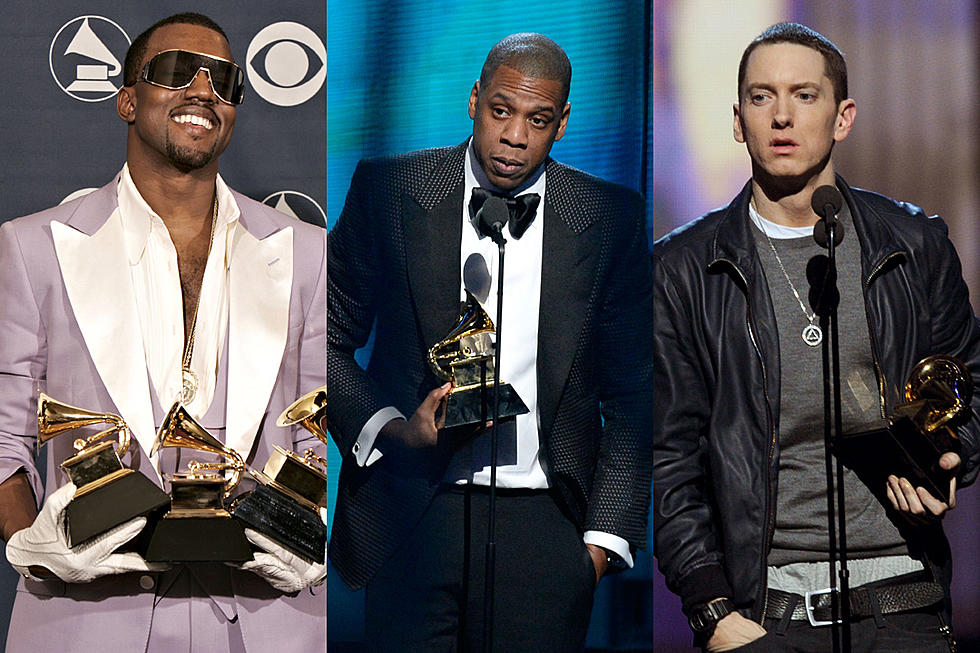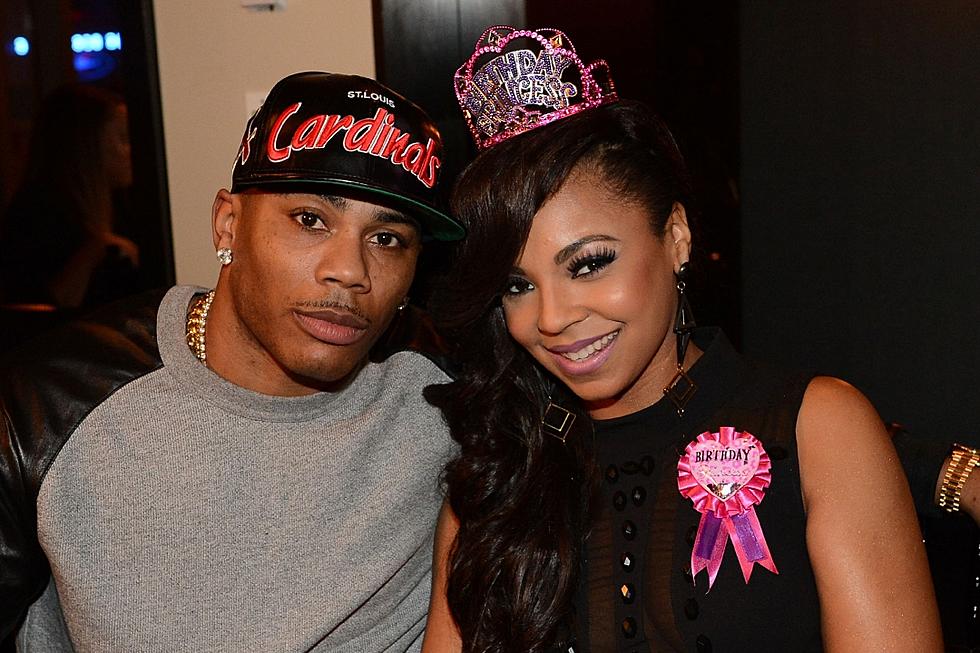
Nelly, ‘Coolsville’ (Originally Published January/February 2009)
Nelly dropped a big summer record, and you ain’t even know it. The video for “Get Like Me” released earlier this week and it’s smoking hot. His featured guests Nicki Minaj and Pharrell offer their talents to create enjoyable anthem that will be played at high volumes. With that said, Nelly hasn’t been on top of the rap game for a while, but will this single help him reclaim the throne? We revisit another time in Nelly’s career when hip-hop heads had similar doubts. This was when Brass Knuckles wasn’t seeing the same chart-topping success as his previous efforts. Still, he wasn’t sweating it. Here’s Nelly in “Coolsville.”
With his new album not exactly burning up the charts, it’s getting considerably less hot in herre for Nelly these days. But if you think St. Louis’s favorite Grammy-winning, multimillion-selling crossover rap star/clothing mogul/energy-drink magnate is sweating it, think again. He’s chilling.
Written By Kris Ex
Hate Nelly’s laugh. It’s this totally unreserved yelp that lies somewhere between Dr. Evil and Muttley. It’s something that would come out of a dastard, and it emerges midthought, a predicate unto itself. That it’s a bonhomous, nervous tick coming among revelations of wealth and avoidance of personal disclosure only makes it that much more annoying. When he speaks on buying a full city block’s worth of commercial real estate in his hometown’s downtown area, he laughs: “I don’t report my earnings to the press. If they come and ask me, I might give you a hint, but I always find out you don’t want to tell a muthafucka everything. It’s just like being Tony Soprano. You can’t tell a muthafucka everything.” Laughter. When confronted about Ashanti, his reputed girlfriend—as he was by Ellen DeGeneres on national TV this past September—he laughs again, shooing things off as if the laughter alone is a suffi cient answer. And when faced with a question that melds the two subjects—say, probing for clarity on these topics by querying, umm, perchance, if the profi ts from his Pimp Juice energy drink would be able to finance a wedding with the R&B star, he cackles and dodges: “I’m just letting you know that I can finance your wedding.” Uncontrollable giggles. Then, pointing around the room: “Her wedding, and her wedding—everybody in here’s wedding off the profits of Pimp Juice.”
Considering that this Manhattan photo studio is populated by some dozen-plus bodies, and—assuming that we’re not all getting the city hall Valentine’s Day special—it stands that Pimp Juice, which Nelly affirms was an afterthought, something that just happened, was a better investment than, say, purchasing shares of Washington Mutual.
And if Nelly’s using the laugh to distract or detract, it’s not a conscious strategy. He’s just happy. It’s the opening days of fall 2007. His fifth studio album, Brass Knuckles, will be in stores shortly (or so he thinks), the economy is good (or so we think), there’s some Black guy running for president, which doesn’t matter much because the Black guy’s not going to get past the primaries. Black guys have run before—they’re not expected to come close to winning. It’s just good for morale. And laughter.
But not Nelly’s laughter. Despite its good-natured earnestness, there’s nothing to love about it.
Love that Nelly’s still here. Though it’s not cool to admit it, people were, umm, feeling Nelly when he came out. At least for the first three million albums sold or so, 2000’s Country Grammar had heads singing the schoolboy chorus of his fi rst single, aligning themselves with its gritty undertone—he was talking about riding dirty with a highpowered assault rifle in a luxury SUV, after all. There he was, a brother from St. Louis, an uncharted part of the hip-hop landscape, who came out with no big-league co-sign, who just did the damned thing—rapping, singing songs with bridges, bringing his crew along, changing the game, making ringtone music before there were ringtones.
But then he got mired in hip-hop’s internal self-hate and identity crisis. This music, this genre, this thing of ours (as much as it can be said to belong to us, that is, as opposed to corporate interests), it strives to be both art and commerce, defiantly counterculture yet mainstream, too. With justifi cation. This Cosa Nostra can be singly pro-consumerist. But Nelly proved even that has its limits. He got too successful. Hell, let’s take an extremely partial list of the successes: more than 20 million albums sold in the U.S. alone, three Grammy Awards, four No. 1 U.S. singles, two Super Bowl appearances. Shit, in 2002, even Jay-Z had to include Nelly in his holy trinity of SoundScan kings: Only dudes moving units: Em, Pimp Juice and us.
And then there’s the physique. Unlike LL Cool J, who transformed from a 17-year-old weakling into a Chippendale’s dancer over the course of two decades, and 50 Cent, whose process from menacing doughboy to thug beefcake was aided by a few well-placed bullets, Nelly came to the scene looking damn near ready for the cover of some negro version of Men’s Health. To make matters worse, he’s recently appeared as, honest to Yahweh, an underwear model for Sean John, while the cover art for Brass Knuckles is so few strokes short of gay porn that it makes even his own crew uncomfortable.
Really, if this guy—making a sappy duet with a member of Destiny’s Child not named Beyoncé, going line for line with country-ass Tim McGraw, and turning them both into hits—can have a viable career in the narrow-minded, overly masculine and homophobic world of hip-hop music, by stars and garters, there’s hope for all of us.
Hate. Nelly gets a lot of it. Hate, that is. And not just from the keyboard cowboys. True enough, it was cool to hate on Nelly before it was cool to have an e-mail address. But the hate he gets from some of the more respectable members of the Black community makes the stuff that comes out of the mouths of the types of guys who throw rocks and then hide their hands sound like...actually, the stuff that comes out of the mouths of the types of guys who throw rocks and then hide their hands.
It all started in 2004, when Nelly decided to record a video for his money-and-sex strip-club anthem “E.I. (Tipdrill Remix).” As if the idea of such a song wasn’t bad enough (the horror!), the pretty boy had the unmitigated nerve to (gasp!) slide a credit card down a dancer’s ass crack. Somehow the academic types, who are way too smart to be reading this magazine, let alone watching scandalous videos about butterfaces at unforgiving hours of the night, caught the scent of the clip and began to compare Nelly to a slave owner bidding on the auction block. (No, really.) And leave it to the geniuses at Spelman College, the historically Black women’s institution in Atlanta, to protest, as if no one in college had ever been exposed to strip-club activity. As if—even in this screwed-up, infirm, pathological society, where money is power, sex is a weapon and women are objects—the concept of informed consent between adults is not something they should have been familiar with. Leave it to college-age folk, who, unlike younger teens, who merely think they know everything, think they know every thing but don’t live at home. Leave it to them to protest Nelly’s presence at their hallowed institution. Fuck him and his bone-marrow drive.
Oh, yeah. Nelly was set to go to Spelman not to recruit new pussypoppers, but to, you know, like, try to register bone-marrow donors in the Black community through his nonprofi t organization, Jes Us 4 Jackie. “When you get down to it, you talking about a video,” says Nelly. “I’m talking about lives. It’s not even a fuckin’ comparison. We weren’t able to find [a donor] for my sister [who died from leukemia in 2005], but we were able to find some for, like, six or seven needy people. So I’m not going to say we saved six or seven lives, but—we saved six or seven lives… Or we’ve helped six or seven lives to the utmost. Who out there condemning me could say that? You wanna talk about the ‘Tip Drill’ video. What are you doing? How many lives have you helped save?”
Love Nelly’s laugh. It’s the opening days of fall 2008. Nelly’s fifth studio album, Brass Knuckles, has taken more than 365 days to drop and has not received the warmest commercial greeting (84,000 in first-week sales, as opposed to his last two albums, Suit and Sweat, which both dropped on the same day in 2004 and moved 396,000 and 342,000 out the gate, respectively, claiming the top two slots on the Billboard album charts). The economy’s pretty much gone the way of Yung Berg’s street credibility, and the Black guy running for president, well, That One’s changed everything—how we look at each other, how we look at ourselves, what little Black boys and little Black girls are allowed to dream about.
But Nelly’s laughter is still here, peppering his words with optimism, puncturing any thoughts of bitterness. Perhaps it’s his presumably sizable bank account—he does own an undisclosed percentage in an NBA franchise, his Apple Bottoms clothing line is one of the top-selling junior’s brands in the country, and he’s opened a sports bar with past and present pro athletes Darius Miles, Larry Hughes and Marshall Faulk. Whatever it is, Nelly is determined and jovial, even in these uncertain times. “Okay, what we do? Eighty-four thousand sales the first week? So what’s that? Thirty-five million and 84,000.” He laughs. “Catch me on three more albums, and then maybe we’ll have something to talk about.”
The words are puffed up, but the attitude is not. Nelly’s objective reality lies comfortably in the zone between self-motivational self-aggrandizement and honest, clear-eyed humility. His current situation has him playing “up-close-and-personal” venues like the House of Blues and B.B. King’s in New York, but there’s no acrimony in relation to his downgrade. “The last record I had was, like, four years ago,” he says. “When you been gone for so long, you gotta reiterate yourself back into the movement. On this run right now, I’m just trying to reconnect with people. It’s not like I’m a mixtape assassin or something, where I just keep myself out there on that type of level. I know it’s a grind process, and I respect the game that much more, because you do gotta prove yourself. Hard work ain’t never scared me. We kinda figured, with the way we pushed [the album’s release date] around a little bit, that the first-week numbers weren’t going to be what we would like them to be.
“I like to relate it to Michael Jordan,” he continues (citing his fellow co-owner of the Charlotte Bobcats basketball team). “Mike won three rings. He retired. But when he came back, he didn’t even have a 23 jersey on. He came back with a 45 jersey on. And what happened? He got shook up by A.I. Shaq and Penny took him to school. The next year he came back, he came back with the 23 on, and he came back even hungrier, and he won three more rings. It’s just one of those things where, right now, I got my 45 jersey on. But I’m telling you: I will put this 23 back on.
“After you get out here and you see what it is, [you have to go] back and revamp and bring your game back to a forefront, as far as your strengths and what it is that you do. Even when Jordan came back, he may not have been running and dunking like he used to, but he developed that fade-away. He would still light them up for 30, but he was doing it in a different way. An that’s what I think it is for me now. I gotta find my different way of lighting these muthafuckas back up…I also know that it’s a long haul, and we got things to do. But keep watching this. In this country that we live in, everybody loves a comeback. Everybody loves to see a muthafucka come back from what they thought it was. So we’ll see what happens.”
And then he laughs. And you gotta love it.
More From XXL









